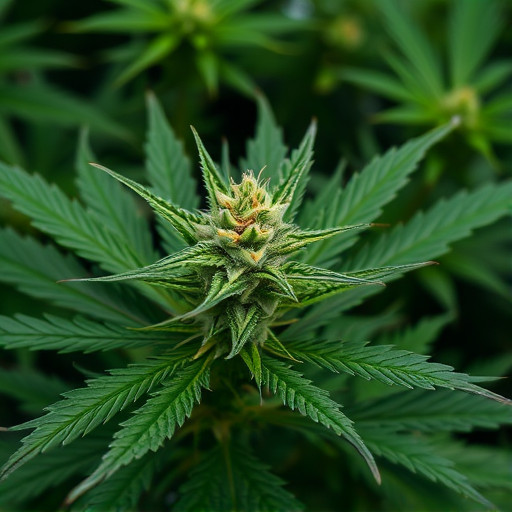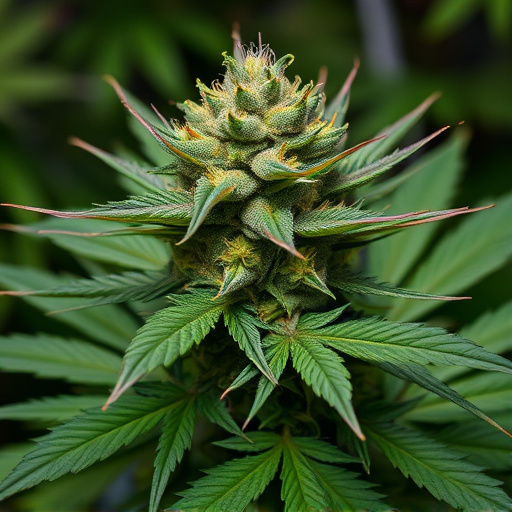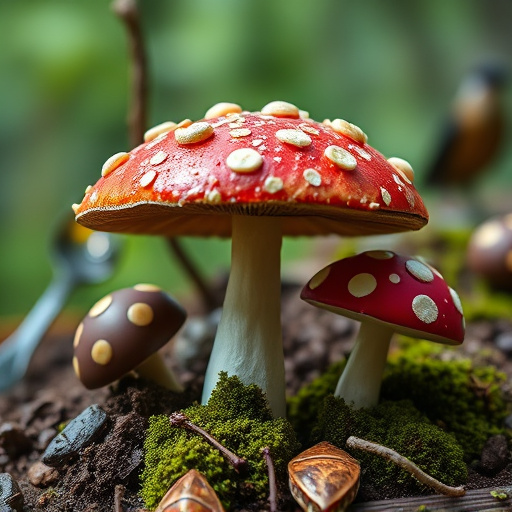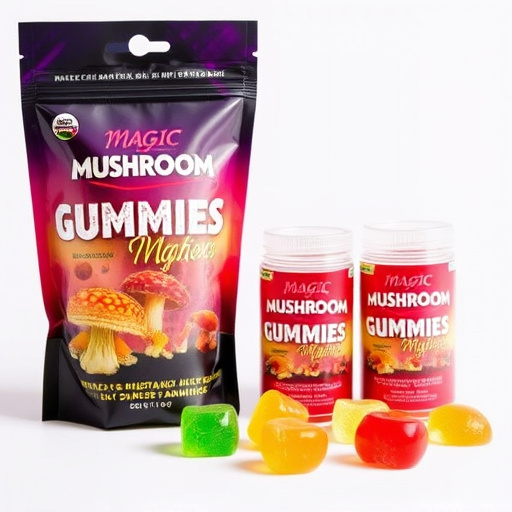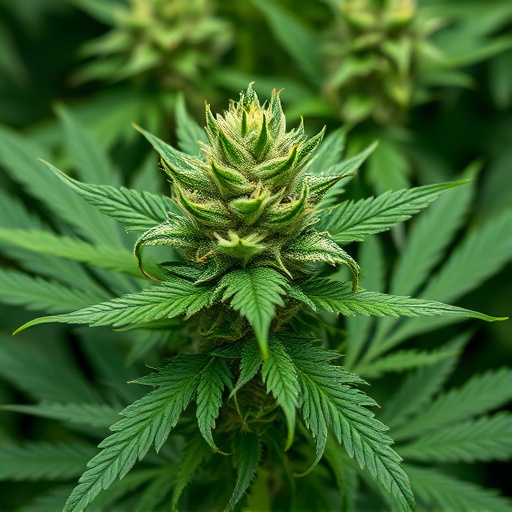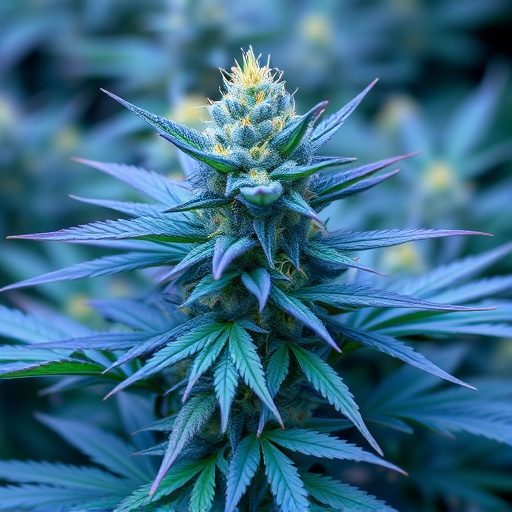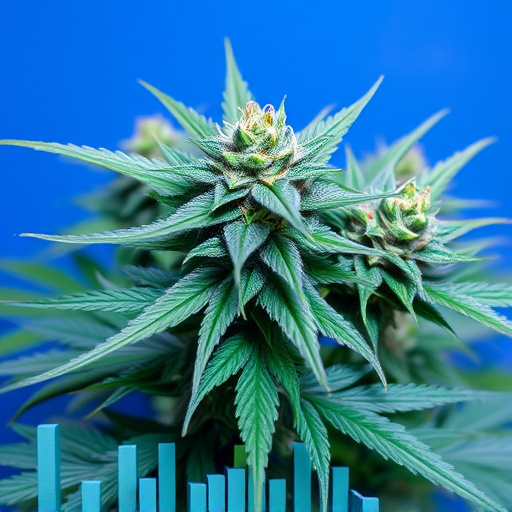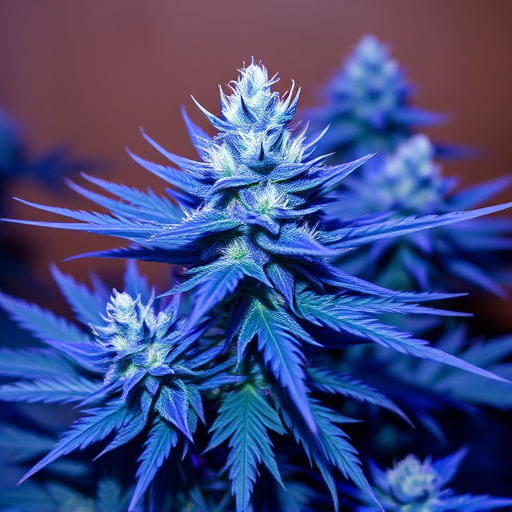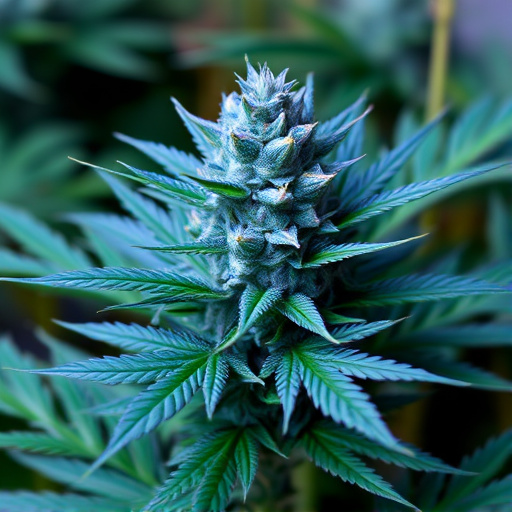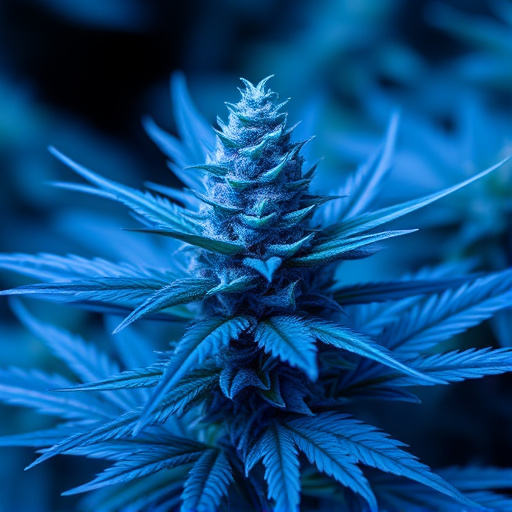Blue marijuana strains, characterized by their unique color and high cannabidiol (CBD) content, show potential as natural remedies for mental health conditions. CBD interacts with the body's endocannabinoid system to regulate mood, memory, and anxiety. These strains offer an alternative to pharmaceuticals for managing anxiety, depression, and PTSD. Scientific research highlights their therapeutic value, especially in alleviating anxiety and depression, with future studies focusing on personalized medicine approaches and long-term effects. As understanding grows, blue marijuana strains hold promise as complementary treatments alongside traditional psychiatric methods.
Can cannabis flower offer a natural approach to enhancing mental well-being? This article delves into the potential benefits of cannabis, focusing on its compounds and specific strains like blue marijuana. We explore how these natural substances may support mental health management, backed by scientific insights. Specifically, we discuss the unique properties of blue marijuana strains and their promising applications. By examining current research and future directions, this guide offers valuable insights for those seeking alternative wellness solutions.
- Understanding Cannabis Compounds and Mental Health Benefits
- Exploring Blue Marijuana Strains: Properties and Potential Uses
- Scientific Insights and Future Research Directions
Understanding Cannabis Compounds and Mental Health Benefits
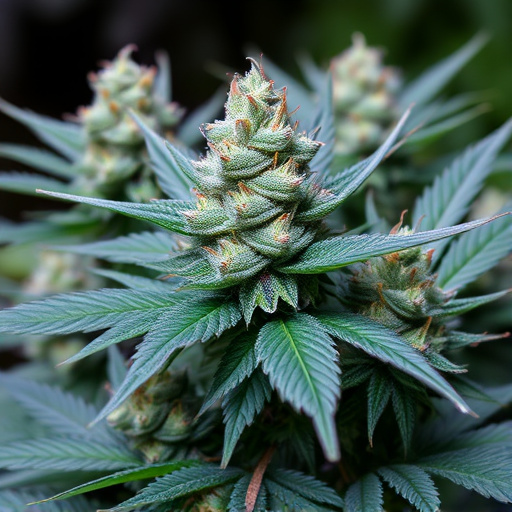
Cannabis contains a complex array of compounds, with tetrahydrocannabinol (THC) and cannabidiol (CBD) being the most well-known. THC is responsible for the plant’s psychoactive effects, inducing feelings of euphoria and relaxation, while CBD lacks these intoxicating properties. Recent research suggests that both compounds can interact with our bodies’ endocannabinoid system, playing a significant role in regulating mood, memory, and anxiety.
Blue marijuana strains, known for their unique coloration and high CBD content, have gained attention for potential mental health benefits. Studies indicate that CBD may help alleviate symptoms of anxiety, depression, and post-traumatic stress disorder (PTSD). These blue strains could offer a natural alternative for individuals seeking to manage their mental well-being without relying heavily on traditional pharmaceuticals.
Exploring Blue Marijuana Strains: Properties and Potential Uses
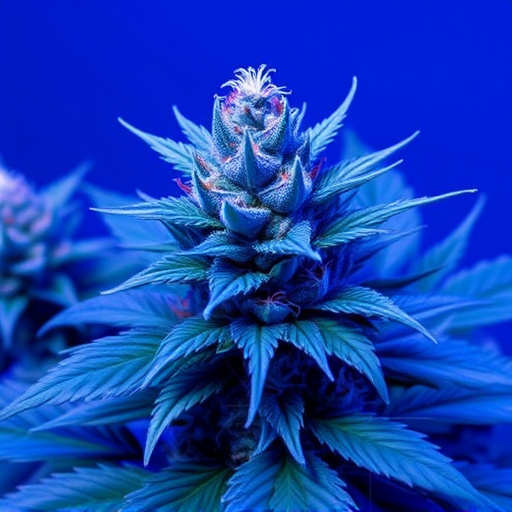
Blue marijuana strains, known for their unique hue and distinct properties, have gained attention in the realm of mental health support. These strains often possess elevated levels of cannabidiol (CBD), a non-intoxicating compound that has shown promise in reducing anxiety, stress, and symptoms of depression. CBD interacts with the body’s endocannabinoid system, which plays a significant role in regulating mood, memory, and perception of pain.
The potential uses of blue marijuana strains extend beyond their relaxing effects. Some varieties may also contain higher concentrations of terpenes, aromatic compounds that contribute to the plant’s unique flavor and fragrance. Terpenes like linalool and myrcene are known for their calming properties and have been linked to improved sleep quality and reduced inflammation, further enhancing the therapeutic potential of blue marijuana strains for mental health applications.
Scientific Insights and Future Research Directions
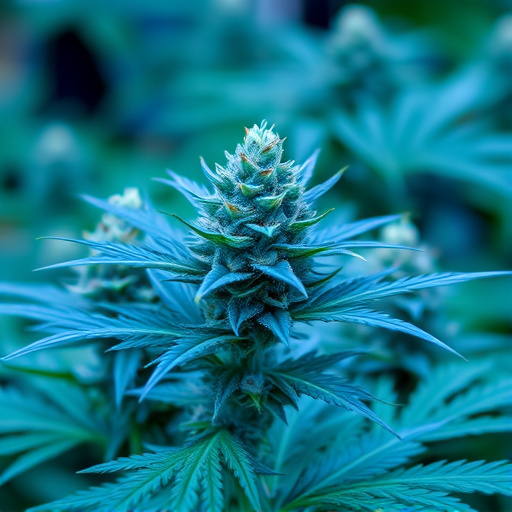
Scientific research into the potential benefits of cannabis for mental health is an evolving field, with promising insights emerging from various studies. Recent investigations have delved into the complex interplay between specific cannabinoid profiles and their impact on psychological well-being. For instance, blue marijuana strains, renowned for their high CBD (cannabidiol) content and low THC (tetrahydrocannabinol) levels, have shown potential in alleviating symptoms of anxiety and depression. CBD is believed to interact with the endocannabinoid system, which plays a crucial role in regulating mood and stress responses.
Future research directions include exploring personalized medicine approaches, where cannabis formulations tailored to individual needs could be developed. Understanding the unique genetic and biochemical factors that influence how different people metabolize cannabinoids will be key. Additionally, investigating the long-term effects of regular cannabis use is essential to ensure safe and effective applications in mental health treatment. As knowledge expands, the potential for cannabis-based therapies to complement traditional psychiatric treatments becomes increasingly promising.
While cannabis flower’s potential to improve mental health is promising, especially with the growing interest in blue marijuana strains for their unique properties, it’s crucial to approach this topic with caution. The scientific insights currently available point towards a need for further research. As we delve into the landscape of mental health treatments, exploring natural solutions like cannabis could be a game-changer. However, more studies are required to fully understand its effects and establish safe and effective use guidelines. Until then, individuals seeking mental health support should consult healthcare professionals for evidence-based options.
